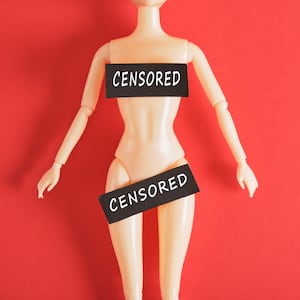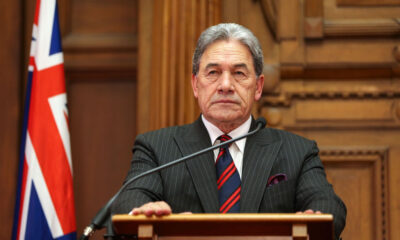World
Act MP Laura McClure Withdraws Deepfake Legislation from Ballot

Act Party Member of Parliament Laura McClure has withdrawn her proposed legislation aimed at criminalising sexually explicit “deepfake” images from consideration. The Deepfake Digital Harm and Exploitation Bill intended to amend existing laws by broadening the definition of an “intimate visual recording.” This expansion would include images or videos that are created, synthesised, or altered to portray a person’s likeness in intimate situations without their consent.
McClure’s decision to pull the bill follows numerous discussions with victims who have reported severe emotional and psychological distress due to deepfake abuse. “Since I lodged my bill, I’ve heard from victims who’ve had their lives derailed by deepfake abuse,” she stated. Her comments highlight the pressing need for legislative action in response to the growing concerns surrounding this digital phenomenon.
Although the specifics of why the bill was withdrawn have not been disclosed, the issue of deepfake technology has gained increasing attention globally. Deepfakes, which use artificial intelligence to create realistic but fabricated images and videos, have been linked to harassment, identity theft, and other forms of exploitation. In recent years, several countries have begun to address these challenges through various legislative approaches.
The withdrawal of McClure’s bill underscores the complexities involved in regulating digital content while balancing freedom of expression. As technology continues to evolve, lawmakers face the challenge of crafting effective legislation that protects individuals from harm without stifling innovation.
Given the rapid advancement of technology, the need for updated legal frameworks is more urgent than ever. The Deepfake Digital Harm and Exploitation Bill was seen by many as a crucial step in addressing these challenges, calling attention to the real-world consequences of digital manipulation.
While McClure’s bill has been removed from the ballot, discussions around the implications of deepfake technology and the need for protective measures are likely to continue. Advocates and policymakers alike will be closely monitoring developments in this area, as the conversation surrounding digital rights and safety evolves.
As society grapples with the implications of deepfake technology, the focus remains on finding effective solutions to protect individuals from potential harm while navigating the complexities of digital expression. The future of legislation in this area will depend on the collaboration between lawmakers, technology experts, and advocacy groups to ensure that the rights of individuals are safeguarded in an increasingly digital world.
-

 Sports1 month ago
Sports1 month agoNetball New Zealand Stands Down Dame Noeline Taurua for Series
-

 Entertainment1 month ago
Entertainment1 month agoTributes Pour In for Lachlan Rofe, Reality Star, Dead at 47
-

 Entertainment2 weeks ago
Entertainment2 weeks agoNew ‘Maverick’ Chaser Joins Beat the Chasers Season Finale
-

 Sports1 month ago
Sports1 month agoSilver Ferns Legend Laura Langman Criticizes Team’s Attitude
-

 Entertainment2 months ago
Entertainment2 months agoKhloe Kardashian Embraces Innovative Stem Cell Therapy in Mexico
-

 Politics3 weeks ago
Politics3 weeks agoNetball NZ Calls for Respect Amid Dame Taurua’s Standoff
-

 World3 months ago
World3 months agoPolice Arrest Multiple Individuals During Funeral for Zain Taikato-Fox
-

 Sports2 months ago
Sports2 months agoGaël Monfils Set to Defend ASB Classic Title in January 2026
-

 Entertainment4 weeks ago
Entertainment4 weeks agoTyson Fury’s Daughter Venezuela Gets Engaged at Birthday Bash
-

 Sports4 weeks ago
Sports4 weeks agoHeather McMahan Steps Down as Ryder Cup Host After Controversy
-

 Entertainment4 weeks ago
Entertainment4 weeks agoTyson Fury’s Daughter Venezuela Gets Engaged at Birthday Bash
-

 World3 weeks ago
World3 weeks agoNew Zealand Firefighters Plan Strike on October 17 Over Pay Disputes




















